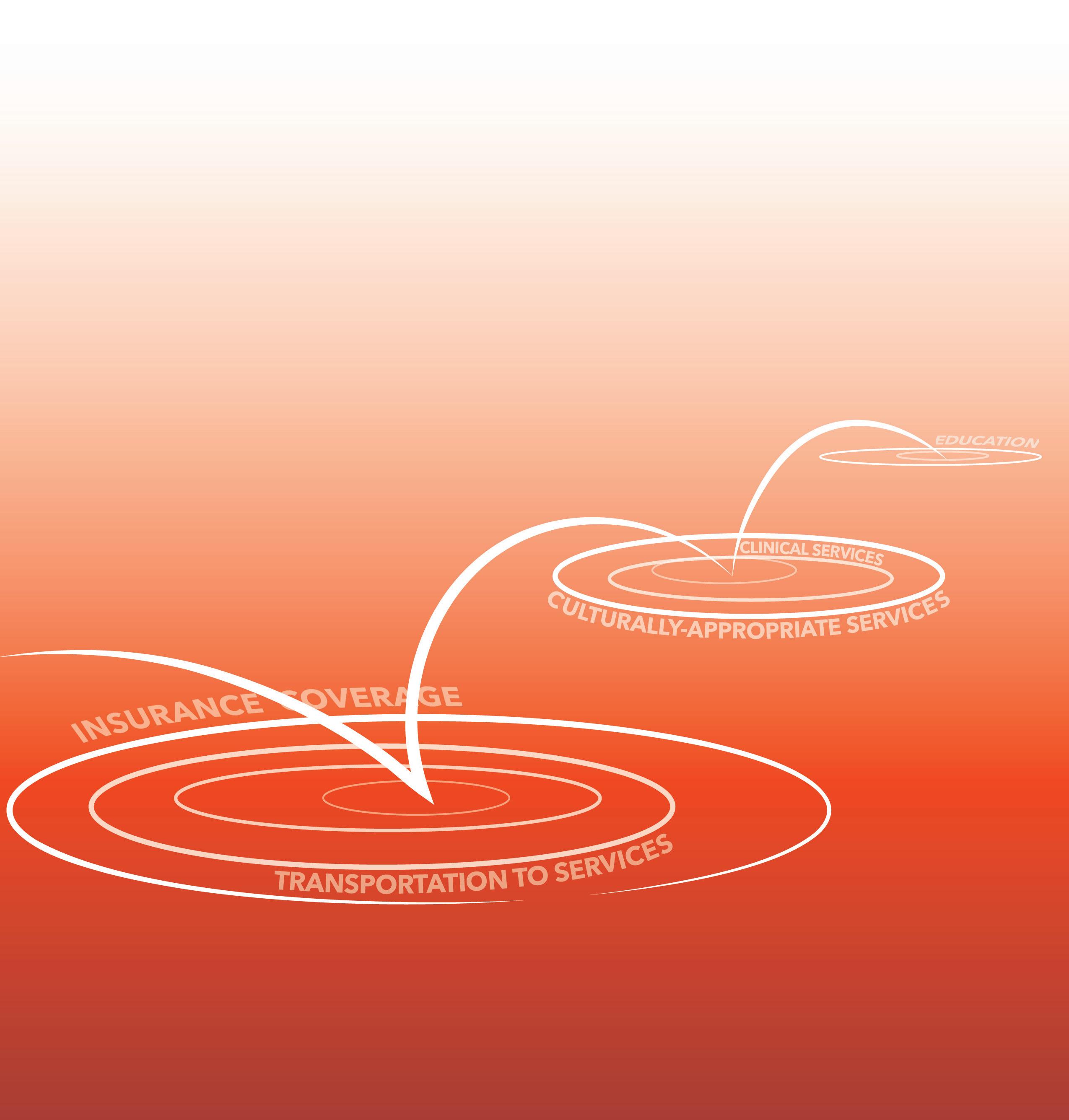
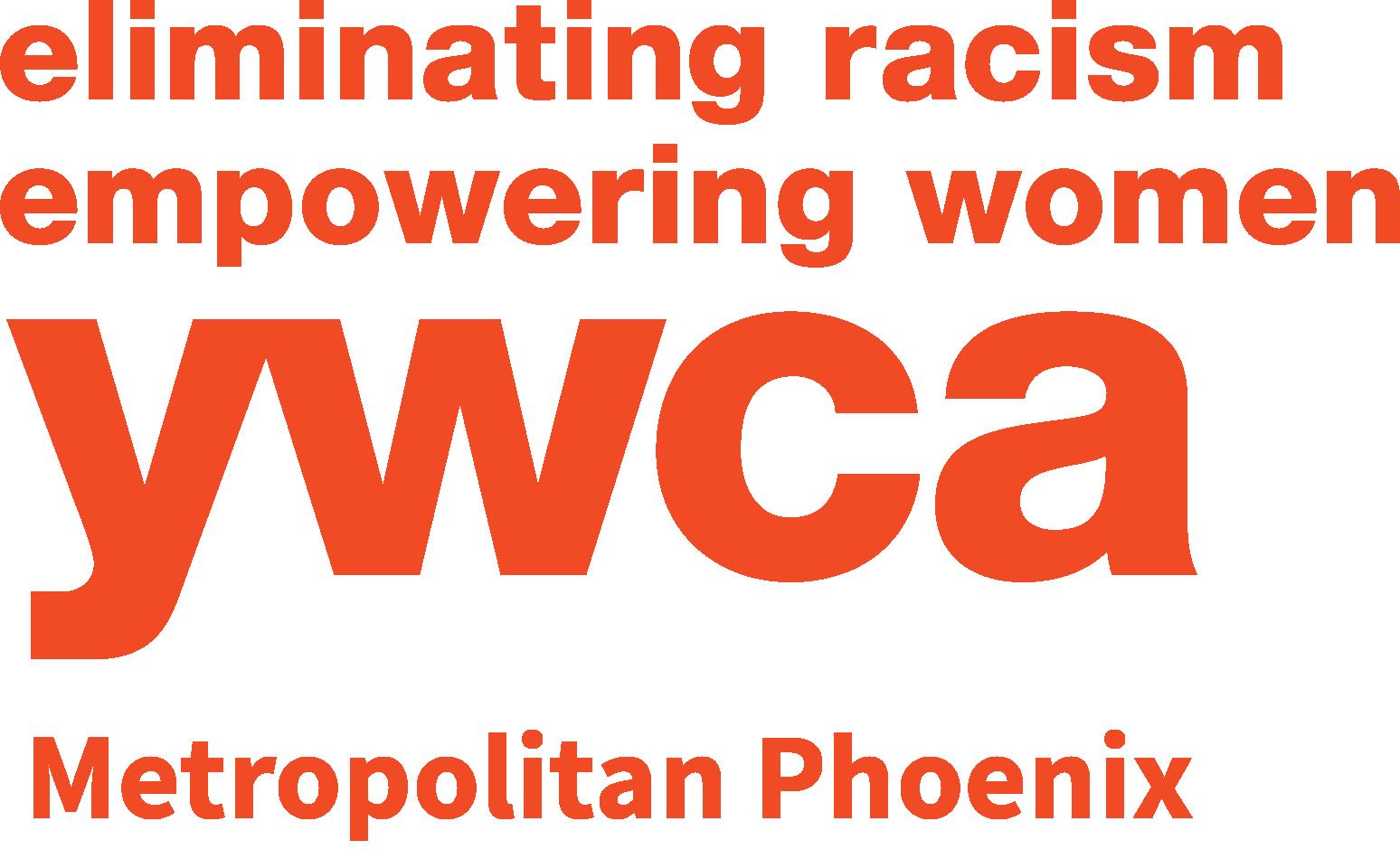
1 LET’S TALK JUSTICE IN MENTAL HEALTH BUILDING HEALTHY, RESILIENT COMMUNITIES YWCA METROPOLITAN PHOENIX SYSTEMS CHANGE INITIATIVE @ JANNAH SCOTT @ jannah@ywcaaz.org 2023 THOUGHT PARTNER REPORT ONYEKACHI EKEOGU onyekachi@ywcaaz.org @ debbie@ywcaaz.org DEBBIE ESPARZA @ BERISHA BLACK @ berisha@ywcaaz.org
Nonprofit Quarterly, 2022
The Systems Change Initiative at YWCA Metropolitan Phoenix is examining post-COVID-19 mental health for impacted populations through a lens of race and gender equity and health liberation. Race and Gender equity asks questions: How does the past contribute to the racial and gender disparities that Arizonans see today? How must Americans understand the impact of societal values and our contemporary culture on our ability to ignore, rationalize, and justify racial disparities? Does everyone have a fair shot and equitable access to mental health and well-being, regardless of their race, ethnicity, gender orientation, or expression?
Health liberation asks “How do impacted communities define access to mental health care in a post-COVID-19 environment? What constitutes good access? Within our systems of care for those suffering from mental illness, what are the potential policies, systems, and environmental
3 3 GEARS IN MOTION
One “GEAR” is incapable of moving without the other two joining in motion. These three gears that are moving in tandem are integral to this work.
We must convene partners and affected community members in LISTENING SESSIONS. We amplify STORIES & DATA to understand the ground truth.
Then we can advance JUSTICE IN POLICY & ECOSYSTEMS.
sources of community empowerment and liberation? What are the sources then of disempowerment and displacement?
In this unique time in our history where Maricopa County saw nearly 20,000 people die from COVID 19 (Source: https://news.google.com/covid19/map), we want to explore:
1. The impact of this pandemic on the mental health of people of color, age and gender;
2. The role of community-centered, participatory decision making in...
a. How mental health access is defined
b. How mental healthcare information flows
c. How culture and stigma are acknowledged (or not) to pose or eliminate barriers
3. The presence of existing structures that may pose unintended barriers to mental health.
1
“What would it look like for the collective experiences of impacted communities in mental health to connect to a broader power-building strategy that illuminates clear pathways to action?”
vnoc e n i n gLISTENING SESSIONS amplifying STORIES DATA a dvancingJUSTICEINPOLICY & SMETSYSOCE
&
This is the work of the Systems Change Initiative at YWCA Metropolitan Phoenix.
Building Healthy Resilient Communities—A Systems Change Initiative, involves a structured race equity theory of change process to examine service access barriers and race/gender discrimination against seniors and LGBTQ+ youth aged 18-24. The targeted geographic area includes the following cities and towns in northwest Maricopa County (Northwest Valley):
YOUNGTOWN WICKENBURG WITTMAN AGUILA SUN CITY SUN CITY WEST
OUR APPROACH IS FOUR-FOLD. WE SEEK TO:
Develop and leverage partnerships with the people that YWCA Metropolitan Phoenix intends to serve and key partnering organizations;
Create more safe spaces for courageous conversations through town halls, listening sessions, surveys, and thought partner convenings;
Champion more changemakers in communities around the issue of mental health in the Northwest Valley; Amplify the voices of those who have been disproportionately impacted by COVID-19, especially those impacted by mental health issues.
This interim report examines the learnings from the thought partnership meetings held during September 2022 and November 2022 and shares a set of constructs that are guiding our work in the formation of community listening sessions. We go into the listening sessions without preconceived notions, but YWCA Metropolitan Phoenix would like to examine the alignment (or lack thereof) of what thought partners think the major issues are compared to the ground truth for people in impacted communities.
What Do We Mean by Mental Health?
YWCA Metropolitan Phoenix believes that mental health is not just the absence of illness; it’s the presence of well-being. We do not claim to be experts in mental health, therefore we are working with those who are. We seek to find solutions to policy, systems, and environmental challenges along the continuum of mental health: from healthy to serious mental illness.
MENTAL HEALTH CONTINUUM
Adapted from Bournes Relocation Solutions (June 28, 2018)
2
HEALTHY Normal, Functioning REACTING Common and Reversible Distress INJURED Significant Functional Impairment ILL Clinical disorder, Severe & Persistent Functional Impairment
GLENDALE PEORIA SURPRISE EL MIRAGE
SYSTEMS CHANGE INITIATIVE PROCESS WITH THOUGHT PARTNERS
We held four thought partner sessions, where we brought together thought partners with knowledge, involvement and leadership in public health, mental health, and systems issues in the Northwest Valley of Maricopa County to co-create the process of making positive systems change.
We began by hosting a transformative inquiry discussion around the following two initial questions:
a) What elements of mental health may be impacted by structural racism and genderism?
b) What are the questions we should be asking as we seek solutions to the problems of structural racism/genderism within the mental health system?
Focusing on structural racism means that we must move beyond attempts to change the attitudes of individuals and the practices in institutions to include a focus on shifting public policies and cultural representations as well.
For example, a grassroots organization seeks to ensure that federal dollars for mental health services are directed into community-based, culturally-rooted practices rather than mainstream (often white-led) clinical programs. They might find that the people who decide where funding goes occupy multiple levels: federal policymakers engaged in legislative action; state Medicaid offices setting rules; local hospitals that distribute funds; and providers who are disconnected from the community. Questions such as, “What policies stand in the way of access? What cultural norms for mental well-being go unacknowledged? Is there room for innovative, liberatory practices “by community-in community” that do not depend on a dominant culture model?
“The land is significant to the mental health of Native Americans because of our deep spiritual connection to Mother Earth. (For our mental well-being) you must move away from the ‘extractive, exploitative’ model of interaction with the land and each other and move toward a model of ‘reciprocity’. Before you take something, you make an offering to put something there that even makes it better, back to its original form. Before you seek to ‘treat’ mental illness among us, you must acknowledge the good that is inherent within us, and what has been taken, extracted, and exploited from us, from our bodies, from our land. The offering is acknowledgement and understanding.”
Adapted from Rafael Tapia, “Expressions of Deep Spiritual Connection to the Land,” Find our Voices, LLC.
Working through each of these scenarios and more requires distinct analyses, strategies, and entry points to achieve community oversight. This can be time-consuming and a challenge for resource-constrained organizations with limited lines of sight into the workings of these often-opaque institutions. Our effort is to bring greater clarity to the workings of the systems so that solutions can be co-created.
Key thought partners participated in dialogue with us over 3 months to discover the major issues in the postCOVID mental health environment from their perspective. We organized the issues into four constructs: access to services, community knowledge and awareness, cultural and stigma concerns, and oppressive systemic barriers. Interestingly, these constructs mirrored what was found in Arizona Town Hall Creating Solutions 2022 report on Mental Health, Substance Abuse and Homelessness.
3
Lack of access to culturally proactive mental health providers
Timeline for access to services is too long
Absence of safe spaces to share about mental health issues
Lack of transparency in what insurance covers that leads to an emergency room visit
Mental health accommodations are not always available
Lack of basic community education on mental health issues
Lack of mental health curriculum that resonates with the Spanish speaking community
Many youth and young adults are not educated on mental health
Resource providers currently do not work together on behalf of the families. Individuals and families are not aware of all resources available to them and are not encouraged to take part in many resources by their providers, allies and community
CULTURAL/STIGMA CONCERNS OPPRESSIVE SYSTEMIC BARRIERS
Intersectionality among populations impacted not recognized by the mental health system, e.g., with those experiencing homelessness
People shy away from services because of stigma of the “name”
Absence of cultural navigators to help seniors and LGBTQ+ 18-24 year olds overcome systems concerns
Unacknowledged racial and gender biases among providers
COVID worsened access and mental health disparities among certain populations
Stress on essential workers—for the individual, their employee group and their families—remains generally unaddressed
Lack of a holistic person centered approach in provision of care
Power dynamics are not acknowledged nor mitigated when servicing people of color
In addition, the following issues were highlighted in the research literature across these constructs:
ACCESS TO CARE
• Lack of access to physical health care resulting in mental health impact
• Economic hardship results in mental health impact and lack of access to care
• Cases/hospitalizations/deaths continue to rise within post-COVID environment
• Presence of comorbidities results in significant impact on access to mental health care
CULTURE/STIGMA
• Lack of social support and connections exacerbate the experience of stigma
• Isolation, physical and social distancing from others posed a greater hazard to seniors
• Domestic violence increased among those affected by COVID isolation
• Stressors as a result of migration and post-migration integration impacts mental health
• People with lower education levels reported lower mental health status
• Living in multigenerational households during post-COVID sometimes had negative impact on mental health
OPPRESSIVE SYSTEMS
• Lack of understanding among providers posed a barrier to effectively/holistically serving marginalized populations
• Presence of coexisting stressors among certain populations had a negative impact on mental health
4 ACCESS TO SERVICES COMMUNITY KNOWLEDGE & AWARENESS
VIEW
OF THE NORTHWEST VALLEY: GROUNDING SYSTEMS CHANGE IN QUANTITATIVE FACTS


Mental health has grabbed the attention of national, state, and local agencies during the post-pandemic times. This trend to highlight and center mental well-being is partially motivated by the high rates of mental illness and distress reported by communities during the different waves of COVID-19. According to the National Alliance for Mental Health, 26.3 million U.S. adults received virtual mental health services in 2020. In one year, this rate increased by about 2 million U.S. adults. This metric achieved the milestone for half of U.S. adults with mental illness accepting services for conditions like anxiety disorder, depression, and post-traumatic stress disorder. Mental health trends are similar at the state level.
Arizona matches the national trend of having 1 in 5 adults in the state having a mental health condition. According to the National Alliance for Mental Health, adults had 1,030,000 diagnoses of mental health conditions in 2020 like depression and anxiety. This mental health trend is further complicated by the Arizona Department of Economic Security reporting suicide as the 10th leading cause of death for 2019 and the Blue Cross Blue Shields of Arizona Foundation sharing that the above national average rate of 14 percent for frequent mental distress in 2019. County and city levels of mental health data amplify mental health trends alongside insights on social vulnerabilities for the target population.
Mental health in the Northwest Valley is affected by many factors. According to the CDC/ATSDR Social Vulnerability Index, Northwest Valley communities and populations experiencing the highest and high-levels of social vulnerabilities struggle to keep mental health in part due to their unattended and unmet needs in 2020. This map suggests that the Northwest Valley LGBTQ+ young adults and Seniors of Color communities are facing general challenges in addition to the ones that they face as individual populations (see Figure 1).
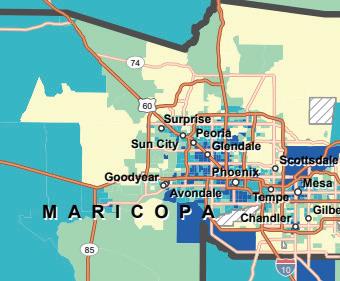
5
Overall Social Vulnerability Index in Arizona (2020) (Source: https://svi.cdc.gov/ Documents/CountyMaps/2020/Arizona/Arizona2020_Maricopa.pdf)
LGBTQ+ age distribution in Arizona data from the Williams Institute (2019)
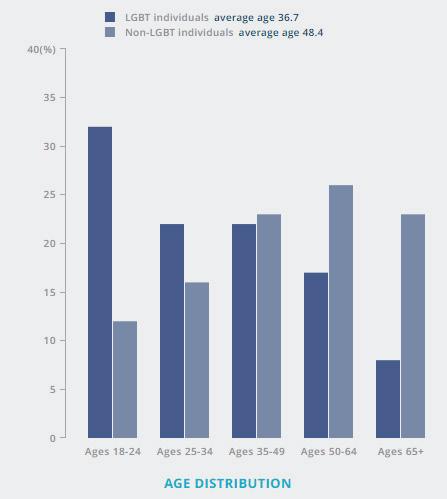
(Source: https://williamsinstitute.law.ucla.edu/visualization/lgbt-stats/?topic=LGBT&area=4#demographic)
Looking at the LGBTQ+ population in Arizona, the Williams Institute reports that 32 percent of surveyed individuals self-identify as LGBTQ+ young adults, ages 18 to 24. Within these Gallup statistics, there is an unknown number where half of the young adult population, at 56 percent, are unwilling or unable to share their sexuality. This vast gap in respondents points to a hidden figure when it comes to this population. LGBTQ+ young adults, from 18 to 24 years, in the Northwest Valley, are struggling with social vulnerabilities that are prevalent in the area. In addition, many are affected by the challenge that the data does not reflect their age range in many popular research methodologies.
6
FIGURE 2
Many Arizona seniors reside beyond the urban setting. In Youngtown, Sun City, Sun city West and parts of Wickenburg, seniors 62 years old and older represent over 69% of the population (2021 American Community Survey). Data from the CDC’s Social Vulnerability Index suggests that many seniors in the Northwest Valley are also struggling with social stressors related to housing and economics (see Figure 3).
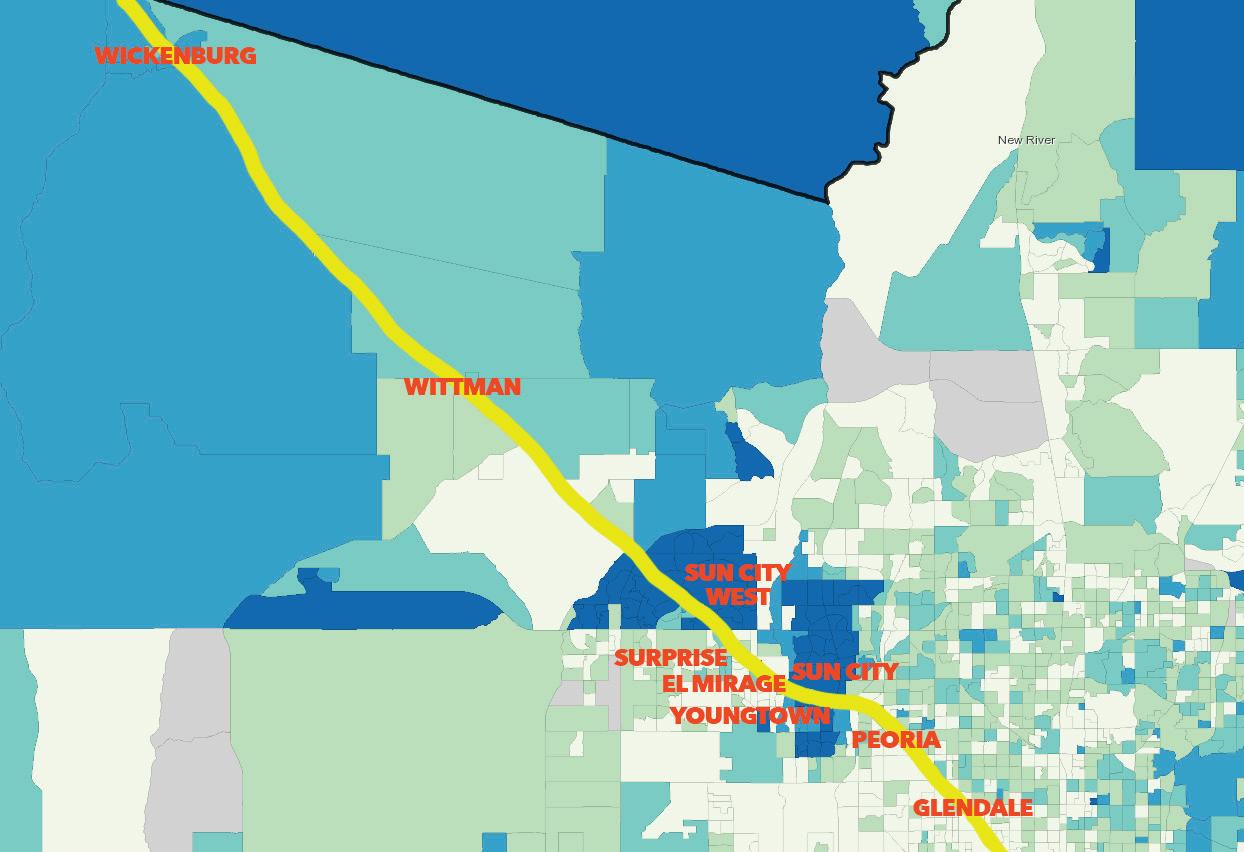
Championing and transforming mental well-being for Northwest Valley LGBTQ+ young adults and seniors of color, as other communities struggling with mental health conditions, is an active, community-intensive, labor full, cost-intensive, and resource-intensive process. YWCA along with thought partners across the Valley have committed to this transformation
FIGURE 3
Adapted from Arizona Demographics from Maricopa Association of Governments
(Source: https://geo.azmag.gov/maps/azdemographics/)
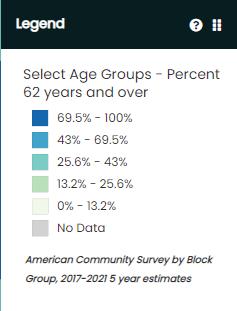
7
WHAT IS NEXT FOR THE SYSTEMS CHANGE INITIATIVE?
YWCA acknowledges that these constructs–access to services, community knowledge and awareness, cultural and stigma concerns, and oppressive systemic barriers–may only represent the tip of the iceberg of issues that need to be examined. But based on our approach to this work, we will continue to collect data, analyze, iterate and bring forth additional potential solutions. We will continue to frame this work from the research, data on our communities, thought partner conversations and most importantly what we hear from the voices of impacted populations.
How do we bring attention to the disproportionate impacts of these barriers due to a structural racism and genderism model?
Over the next 4-6 months, we will continue the work, seeking to move closer to identifying and amplifying the voices of people impacted and beginning to work together with them to craft suggested solutions. We will do this in various ways, including:
CONDUCT LISTENING SESSIONS:
YWCA will start conducting listening sessions with community partners in late January 2023. Listening sessions will be held in over 20 locations across the Northwest Valley with seniors of color, LGBTQ+ young people, community allies and families of people suffering from serious mental illness. For example,
Arizona State University Watts College has agreed to conduct listening sessions with students at two locations:
• ASU Leaders Forum in Tempe
• ASU West Specially Scheduled Gatherings in Glendale
The Watts College has been a phenomenal community partner, connecting us with key faculty, staff and resources throughout the University and truly operationalizing the ‘town and gown’ relationship ASU is known for.
one•n•ten will conduct listening sessions at their satellite locations in Surprise and Peoria. one•n•ten has worked tirelessly for decades to combat the negative impact and destabilization that stigma and discrimination in Arizona have on LGBTQ+ youth. one•n•ten provides safe spaces and innovative programs for youth to develop stabilizing factors in their lives and build resilience.
Gregory’s Fresh Market (GFM) has agreed to conduct listening sessions with seniors of color at one of their partnering senior housing facilities. GFM, a mobile produce market, operates in senior communities without easy access to healthy food. GFM also provides education to increase senior understanding/acceptance of making healthy food choices, and advocacy to restore healthy food access. GFM works to eliminate health disparities and enrich the lives of seniors they serve.
Aguila Public Library, a subsidiary of Maricopa County Library District, has agreed to do a listening session with residents of this rural community. Aguila, known for its broccoli and cantaloupes, is home to many seniors and migrants who suffer from the coexisting stressors of poverty and lack of access to basic services. Yet, the spirit of the community has not been broken. Aguila leaders, impacted families know and those who suffer from some form of mental illness look forward to the chance to be heard.
Valleywise Health has been a significant thought partner, especially on issues related to LGBTQ+ and persons living with HIV-AIDS. Through the Valleywise Health Voices of Hope Speakers Bureau, we are planning interactive listening sessions to understand the post-COVID mental health impacts of those living with HIV-AIDS and their loved ones. Through sharing their stories, HIV knowledge is increased, and HIV related stigma—a driver of poor mental health—can be decreased.
8
NAMI Valley of the Sun, an affiliate of the National Alliance on Mental Illness, has agreed to host a gathering of families and allies of people suffering from serious mental illness. In the early 1970s, small groups of family members, nationwide, began to gather around kitchen tables searching for support and understanding of their mentally ill family member. Many were moms blamed by the medical profession that their parenting skills caused their child’s schizophrenia or other mental health disorder. NAMI Valley of the Sun has provided YWCA with significant thought partnership on the systems issues affecting impacted families and their loved ones.
YWCA’s More Than a Meal program, a program of the Maricopa County Area Agency on Aging, will conduct listening sessions and provide opportunities for our congregate meal clients to speak to the issue of racism and genderism in mental health. For over 40 years, More than a Meal has been reaching seniors of color in Glendale. Through the site at YWCA headquarters, YWCA has already supported the County through pilot listening sessions. In the coming weeks we will reach more seniors of color through the sites at YWCA Senior Center and through our additional satellite sites.
These sessions will incorporate various forms of expression to resonate with the largest number of people. We will include theater, poetic expression, voices of hope, interactive space mapping, music and art as a way to hear the heart of those most impacted. This type of approach is of critical importance and is acknowledged when we understand that people who are struggling with mental health issues may also be survivors of some sort of trauma (Source: https:// www.womenshealth.gov/mental-health/abusetrauma-and-mental-health). In communicating with people who have been impacted by mental illness of any kind, YWCA seeks to offer, utilize and engage with forms of expression that mitigate the potential for retraumatization.
In late Spring, YWCA will share results of listening sessions with our thought partners, participants and the broader community, with recommendations for action.
IDENTIFY AND ENGAGE UNHEARD, UNENGAGED POPULATIONS:
As we began to plan for listening sessions, YWCA had to ask ourselves, “What populations are we missing? What geographies have we overlooked?”
What we found is that in the Northwest Valley, it is easier to find LGBTQ+ populations over the age of 24 and harder to locate young LGBTQ+ adults between the ages of 18-24. The university settings will be one of our target locations to reach these young people. Seniors who are isolated due to illness, disability, geography or other reasons are also more difficult to engage. The cities and towns along the US 60 in the Northwest Valley are prime locations for possible engagement with unreached seniors. We have begun and will continue to engage community partners and service providers across Maricopa County in gathering places, public events and group residential locations to engage unreached seniors.
ALIGN THE ISSUES:
Over the next several months, we will be taking several steps, moving closer to recommending solutions to the issues that thought partners and community residents share. One important question for us is: do the issues brought forth by thought partners align with those expressed by community residents? If not, why not? Are providers hearing those impacted? If not, what are the possible reasons? Are there language barriers, cultural barriers or power dynamics that are keeping providers and community members from hearing one another? Once we confirm this alignment of the issues, we will seek to answer these questions, accompanied by learnings from the research on client-provider interactions.
9
REFINE, FURTHER ITERATION OF PRIORITY ISSUES AND POTENTIAL BARRIERS:
Based on how the container of information evolves, YWCA will conduct periodic re-examination of our data and assumptions from the research. For example, we would like to take a deep dive into the following topics:
Explore and bring greater visibility and understanding to Gallup data on LGBTQ+: While many surverys and data sources do not adequately count LGBTQ+ populations, Gallup has sought to do just that. YWCA will explore what this data means for our communities and how we ensure that LGBTQ+ populations can speak into future data collection efforts.
Assess the feasibility of obtaining data and maps stratified by race/ethnicity, age and geography of seniors from Maricopa Association of Governments (MAG): The regional planning agency for major issues affecting local and tribal governments in Maricopa County and portions of Pinal County, MAG, has provided access to invaluable information on where seniors reside. However, in order for us to develop strategies to reach seniors of color, we will explore the possibility of getting access to more stratified data.
Participate in the community stakeholder discussions with AHCCCS on state policy related to recently-approved 1115 Medicaid waiver opportunities: The state Medicaid agency, AHCCCS, has another 5-year opportunity to improve access to behavioral health services for all Arizonans through targeted investments in innovative and culturally relevant strategies. YWCA will meet with AHCCCS and speak into what these strategies might look like to ensure they are just and equitable.
Assess the need to engage new partners in geographies and among populations we have yet to reach: In this first six months, YWCA realizes that there are populations and geographies we may not reach this first year. We will continue to
examine this situation and develop an effective strategy for reaching those yet unreached.
Amplify the conversation of ethics and justice in mental health: At a recent national conference of public health professionals, this issue was acknowledged in a plenary panel. Dr. Nancy Krieger, professor of social epidemiology at Harvard T.H. Chan School of public Health said it best:
“Leaders Say Public Health Ethics is
for Social Justice,” Nonprofit Quarterly, December 23, 2022
This conversation served as a call to action for public health professionals to apply an ethical framework that upholds values such as health equity, interdependence, transparency, and justice when engaging in decisions that impact the public. YWCA seeks to herald that same call among public health professionals here in Arizona, so that the conversation and implementation on such values can become a reality for the people of Arizona.
10
“Ethical values are critical to all that we do. Understanding ethics… is what allows you to contest scientific racism. It’s what allows you to contest scientific sexism. It is what allows you to name and look deeply at the assumptions.”
Necessary
HOLDING GENERATIVE SPACE FOR CONTINUAL TRANSFORMATIVE DIALOGUE AND CONNECTIONS
It is our hope that this interim report will have usefulness and ramifications far beyond the life of this project. We want these sessions and connections to serve as a “generative space” to keep the conversation alive about what is going on in the system, how communities are impacted and how YWCA Metropolitan Phoenix and others can co-create ongoing systems change.
Out of this process, YWCA will:
Develop suggestions for policy, systems, and environmental change, discovering ways to help seniors and LGBTQ+ youth with mental health impacts recover and thrive in the post COVID-19 pandemic environment. These suggestions will come forth from a thorough review and conversation around throught partner contributions and listening session comments.
Amplify voices from the listening sessions, so that voices are heard, well-being is achieved and people in communities sense they have the power to improve conditions. We will do this by highlighting the voices of those impacted who will share stories of what works, what doesn’t and what needs to be done to improve things.
Seek to usher in a shift in community mental health narratives by focusing on the question of mental health justice. As Krieger pointed out: “Health Justice… not only looks at who should be doing better, but understands what the relationships are, the social relationships that lead to some groups being denied resources and other groups keeping the resources that are often accumulated on grounds that are unfair and unethical. We need to keep these kinds of principles very clear and make sure we are constantly [assessing this] for any kind of public health work that we do [and] also [consider] who does that demand that we work with? Solutions are not just within public health—they never have been. But public health can stand up for the health of the people and ask who is aiding it…and who is harming it.”
Provide space and convening power for this type of work to continue: YWCA, through its systems change initiative, commits to being a convener of spaces for discussions and co-learning, connections and collaboration. We will promote co-creation of ideas, experimentation, and solution-building. We will come alongside local, state and national entities and projects who seek to center their thinking and work on cross-sector, cross-industry innovation for just, liberatory societal systems and transformation.
Share
your thoughts about access to Mental Health Services.
SCANMETO PARTICIPATE!
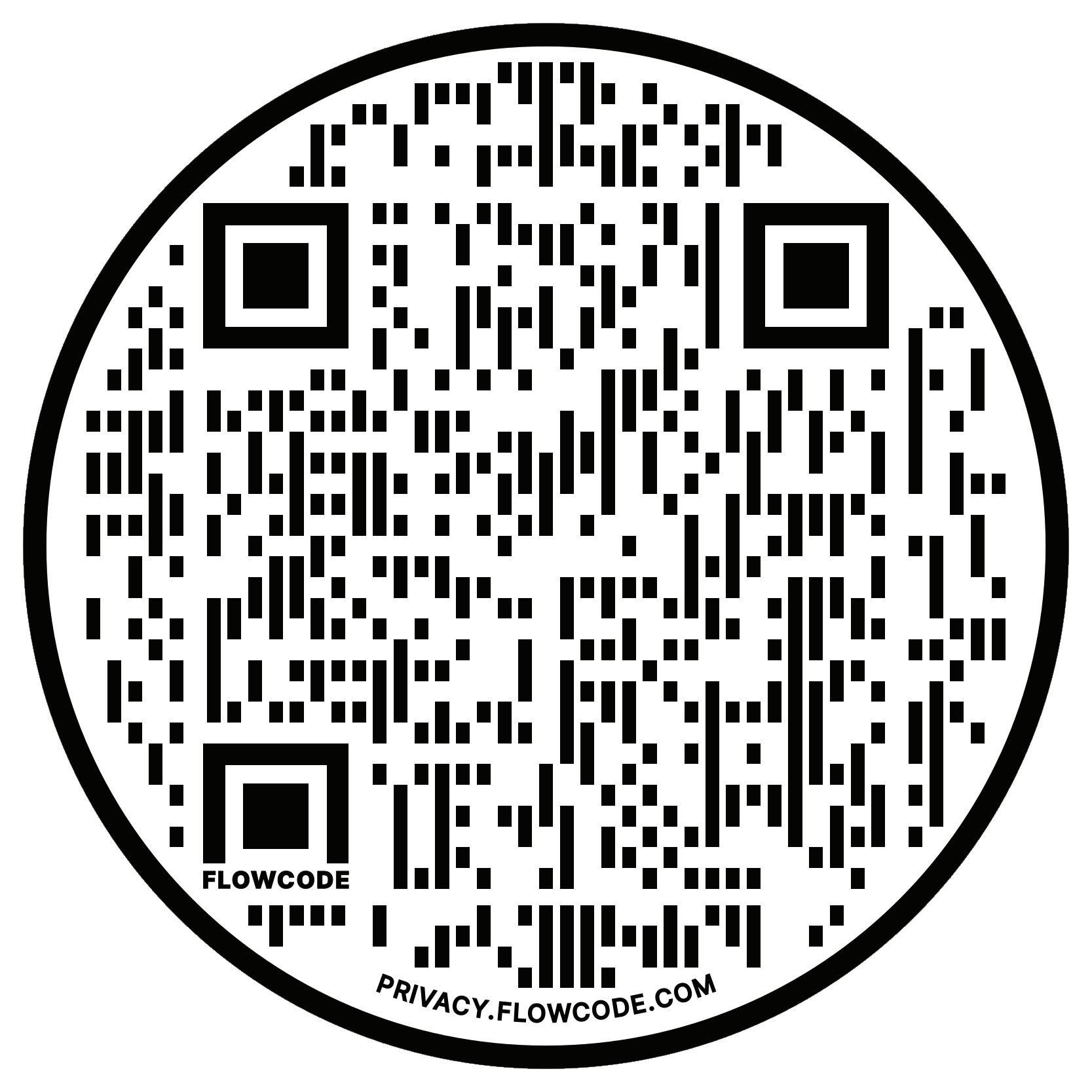
11
YWCA OFFERS A SPECIAL NOTE OF GRATITUDE TO THE FOLLOWING THOUGHT PARTNERS WHOSE CONTRIBUTIONS TO THIS REPORT
HAVE BEEN INVALUABLE
Lisa Platt West Valley Women’s Networking Association
Lisa Farrah Carrillo Adelante Healthcare
Ramiro Alvarez Pendergast Elementary School District
Rafael Tapia Find Your Voice, LLC
Victoria Franks Midwestern University
Eryn Streeter Arizona Medical Association
Wendy Cohen Duet
Amy St. Peter
Maricopa Association of Governments
Joseph Bauer Terros Health
Shane Barrera Southwest Center for HIV/AIDS (formerly)
Beheir Johnson Affirm (formerly Arizona Family Health Partnership)
Trey Jenkins Southwest Interdisciplinary Research Center
Beth Brady Solari
LeAnn Boman NAMI Valley of the Sun
Mary Glennon Central Arizona Shelter Services (formerly)
Isabel Montano & Sandra Foisy one•n•ten
Lauriane Hanson Equality Health
William Dudley Aguila Public Library
Jericho Galindo Southwest Center for HIV/AIDS
Dr. Joel Martin Triad West Inc.
Jennifer Cooper YMCA Valley of the Sun
Hector Araujo Community CaresPowered by Unite Us
Angela Hughey & Michael Soto ONE Community AZ
Wendy Johnson Justa Center (formerly)
For more information, visit: ywcaaz.org/systems-change
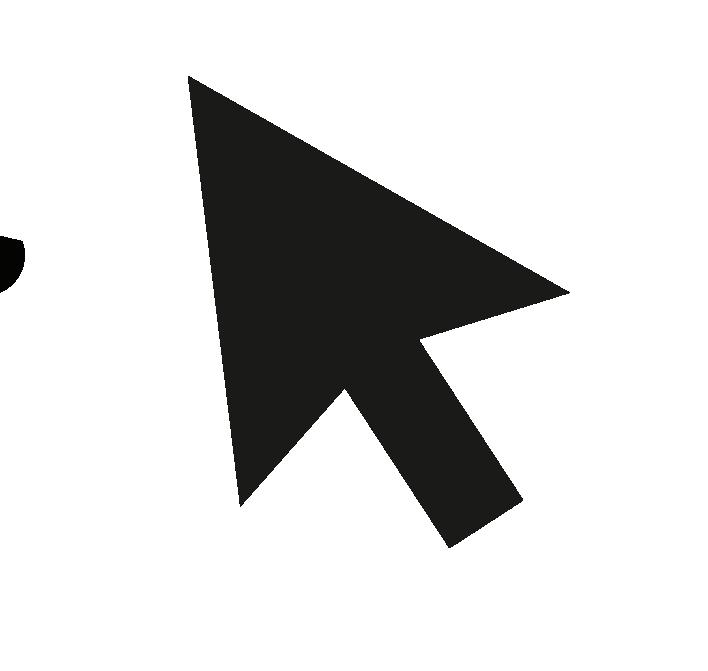
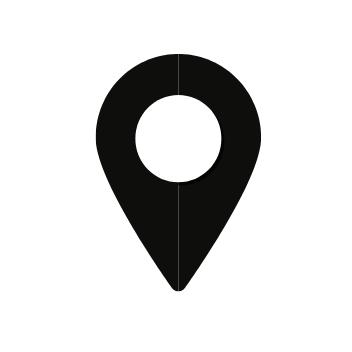

This publication was supported by the Centers for Disease Control and Prevention of the U.S. Department of Health & Human Services (HHS), as part of a financial assistance award totalling $498,689 with 100 percent funded by CDC/HHS. The contents are those of the author(s) and do not necessarily represent the official views of, nor an endorsement by, CDC/HHS, or the U.S. Government. @ywcaAZ

13
8561
61st Avenue Glendale,
ywcaaz.org
N
AZ 85303












